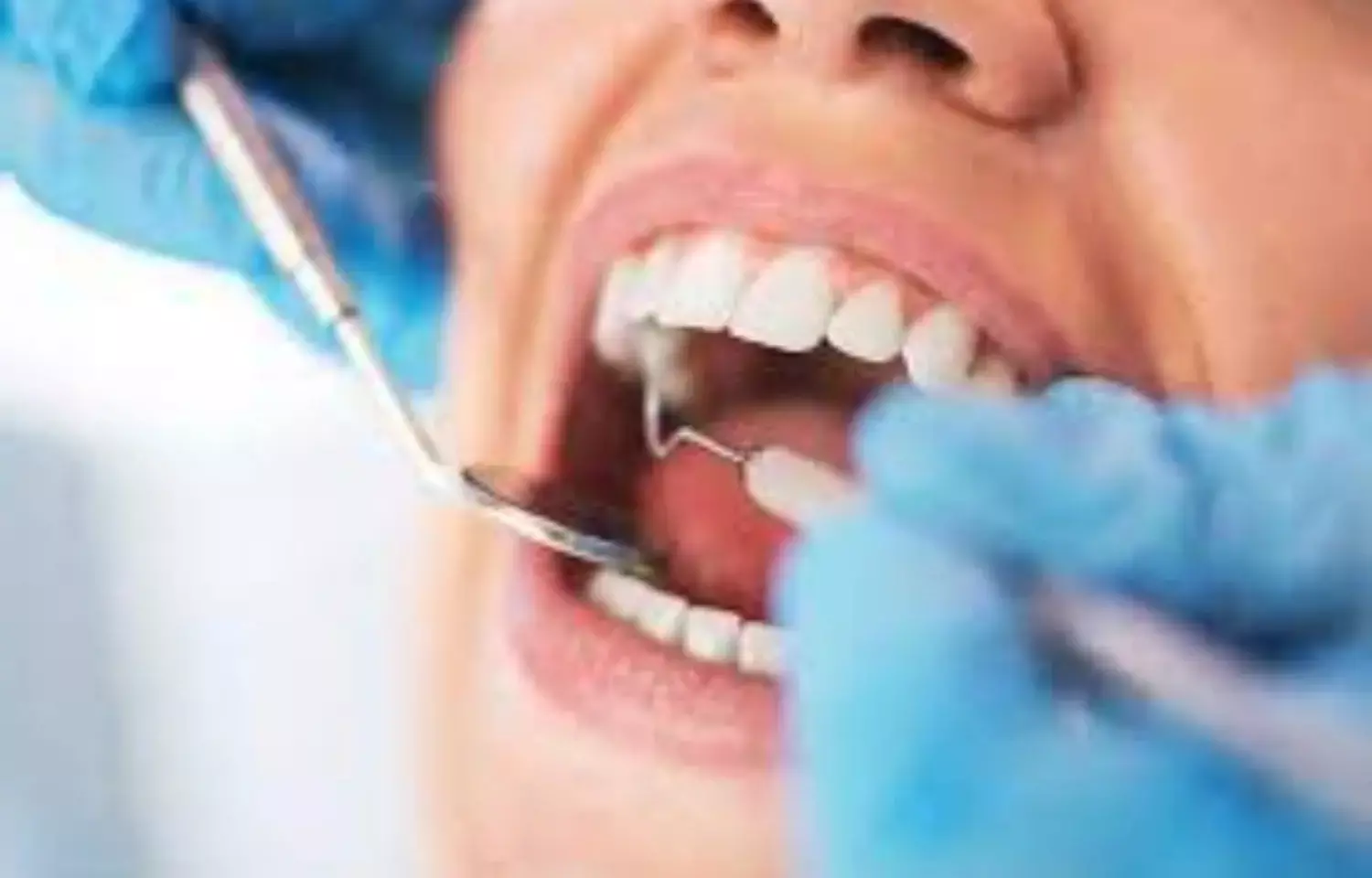- Home
- Medical news & Guidelines
- Anesthesiology
- Cardiology and CTVS
- Critical Care
- Dentistry
- Dermatology
- Diabetes and Endocrinology
- ENT
- Gastroenterology
- Medicine
- Nephrology
- Neurology
- Obstretics-Gynaecology
- Oncology
- Ophthalmology
- Orthopaedics
- Pediatrics-Neonatology
- Psychiatry
- Pulmonology
- Radiology
- Surgery
- Urology
- Laboratory Medicine
- Diet
- Nursing
- Paramedical
- Physiotherapy
- Health news
- Fact Check
- Bone Health Fact Check
- Brain Health Fact Check
- Cancer Related Fact Check
- Child Care Fact Check
- Dental and oral health fact check
- Diabetes and metabolic health fact check
- Diet and Nutrition Fact Check
- Eye and ENT Care Fact Check
- Fitness fact check
- Gut health fact check
- Heart health fact check
- Kidney health fact check
- Medical education fact check
- Men's health fact check
- Respiratory fact check
- Skin and hair care fact check
- Vaccine and Immunization fact check
- Women's health fact check
- AYUSH
- State News
- Andaman and Nicobar Islands
- Andhra Pradesh
- Arunachal Pradesh
- Assam
- Bihar
- Chandigarh
- Chattisgarh
- Dadra and Nagar Haveli
- Daman and Diu
- Delhi
- Goa
- Gujarat
- Haryana
- Himachal Pradesh
- Jammu & Kashmir
- Jharkhand
- Karnataka
- Kerala
- Ladakh
- Lakshadweep
- Madhya Pradesh
- Maharashtra
- Manipur
- Meghalaya
- Mizoram
- Nagaland
- Odisha
- Puducherry
- Punjab
- Rajasthan
- Sikkim
- Tamil Nadu
- Telangana
- Tripura
- Uttar Pradesh
- Uttrakhand
- West Bengal
- Medical Education
- Industry
Oral health crucial for preventing nonventilator hospital-acquired pneumonia, study says

USA: A recent study published in Infection Control & Hospital Epidemiology supports the emerging body of evidence on the cruciality of oral health for the prevention of nonventilator hospital-acquired pneumonia (NVHAP). Research stated that preventive dental treatment within 12 months or periodontal therapy in the 6 months prior to hospitalization is associated with a reduced NVHAP risk.
Hospital-acquired pneumonia is the leading cause of hospital-acquired infections, and NVHAP comprises of 60% of the cases. NVHAP is prevalent in ∼1 in 100 hospitalized patients with an associated crude mortality rate of 15% to 30% and is associated with intensive care unit utilization rates and antibiotic usage. It is the most common pathway to sepsis. Despite the known harm, not much is known about ways to prevent NVHAP.
Because most pneumonia starts from germs in the oropharyngeal cavity, it seemed logical that access to dental services could also impact the cases of nonventilator hospital-acquired pneumonia.
Against the above background, Dian Baker, School of Nursing, California State University–Sacramento, Sacramento, California, and colleagues aimed to determine whether utilization of dental services prior to hospitalization is associated with a decreased risk of NVHAP in 2019 cross-sectional study.
For this purpose, the researchers analyzed hospital records for Medicaid beneficiaries who acquired nonventilator hospital-acquired pneumonia.
Key findings include:
· 13.7% (N = 13,866) of the 1,012,025 Medicaid beneficiaries admitted to the hospital for ≥2 days in 2019 were diagnosed with NVHAP, with incidence rates of 1.95 per 1,000 patient days and 121.9 per 100,000 Medicaid participants.
· NVHAP occurred in across sociodemographic groups.
· Predicted probability of diagnosis of NVHAP decreased with each additional preventive dental visit 1 year prior to hospitalization. In our adjusted model, beneficiaries who had at least 1 preventive dental visit within a year of hospitalization were 10% less likely to get NVHAP (adjusted odds ratio [aOR], 0.90), compared to beneficiaries with no preventive dental visits or visits >1 year prior to hospitalization.
·The use of periodontal services (SRP) <6 months prior to hospitalization decreased the odds of NVHAP diagnosis by 30% (aOR, 0.70).
· Receipt of SRP 6–12 months (aOR, 0.85) or 1–2 years prior to hospitalization (aOR, 0.96) showed no impact on NVHAP incidence.
The researchers wrote, "a Medicaid beneficiary receiving preventive dental treatment in the year prior, or periodontal therapy in the 6 months prior to hospitalization, is associated with a reduced NVHAP risk."
"These findings support the emerging body of evidence on the importance of oral health for NVHAP prevention," they concluded.
Reference:
Baker, D., Giuliano, K., Thakkar-Samtani, M., Scannapieco, F., Glick, M., Restrepo, M., . . . Frantsve-Hawley, J. (2022). The association between accessing dental services and nonventilator hospital-acquired pneumonia among 2019 Medicaid beneficiaries. Infection Control & Hospital Epidemiology, 1-3. doi:10.1017/ice.2022.163
Dr Kamal Kant Kohli-MBBS, DTCD- a chest specialist with more than 30 years of practice and a flair for writing clinical articles, Dr Kamal Kant Kohli joined Medical Dialogues as a Chief Editor of Medical News. Besides writing articles, as an editor, he proofreads and verifies all the medical content published on Medical Dialogues including those coming from journals, studies,medical conferences,guidelines etc. Email: drkohli@medicaldialogues.in. Contact no. 011-43720751


